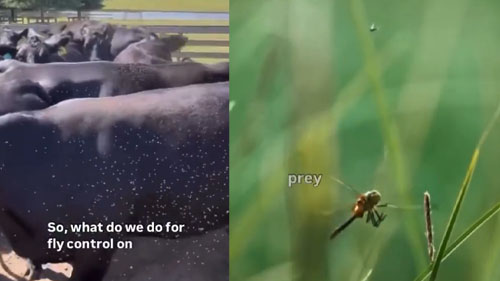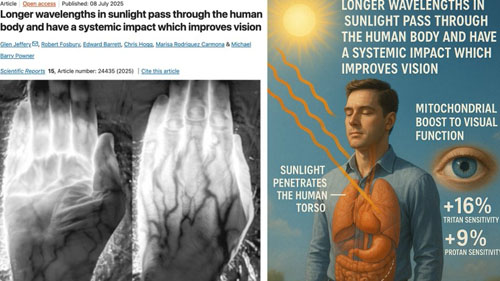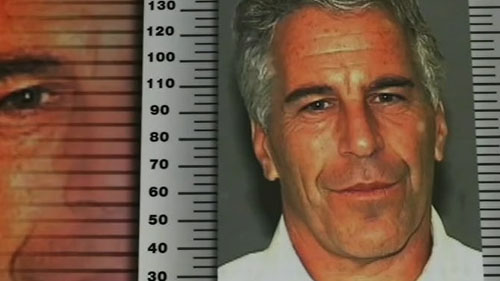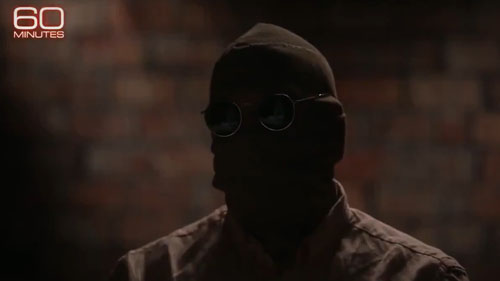| Recent Featured Videos and Articles | Eastern “Orthodoxy” Refuted | How To Avoid Sin | The Antichrist Identified! | What Fake Christians Get Wrong About Ephesians | Why So Many Can't Believe | “Magicians” Prove A Spiritual World Exists | Amazing Evidence For God | News Links |
| Vatican II “Catholic” Church Exposed | Steps To Convert | Outside The Church There Is No Salvation | E-Exchanges | The Holy Rosary | Padre Pio | Traditional Catholic Issues And Groups | Help Save Souls: Donate |  |









 " />
" /> " />
" /> " />
" /> " />
" /> " />
" />




Mary is not Biblical Wisdom - Mary is not God
Bro. Peter Dimond
**This file contains portions of letters we recently sent to a man who believes that the Blessed Virgin Mary is the Spirit of Wisdom (Sophia) mentioned in the Old Testament. As a result of that position and his view of what Scripture teaches about Wisdom (Sophia) in the Old Testament (e.g., that Wisdom is an emanation from God, can do all things, and was not created out of nothing), he has fallen into numerous heresies opposed to faith in the one God. We post these letters for those it might interest or benefit. They cover some interesting and important dogmatic issues. We have not included the person’s name in the hope that he will abandon his heretical views. We refer to him as ‘Q.’**QUESTION TO Q.: Are you saying that you believe that angels and/or the spirit of Mary (whom you consider to be Wisdom) are emanations from God?
Q. Responds: Yes as regards Sophia [Wisdom], but No as regards the angels….
RESPONSE TO Q.
The position that Mary (or any other creature) is an emanation from God is definitely heretical.Vatican I, on God the Creator of All Things, Can. 4: "If anyone shall say that finite things, both corporeal and spiritual, or at least the spiritual, have emanated from the divine substance, or, that the divine essence by a manifestation or evolution of itself becomes all things, or, finally, that God is universal or indefinite being, because by determining Himself, He created all things distinct in genera, in species, and in individuals: let him be anathema." -Denz. 1804
God created all things, including Mary, out of nothing. Sincerely, Bro. Peter DimondQ. RESPONDS – HE MAINTAINS THAT MARY, WHOM HE CONSIDERS TO BE ‘WISDOM’ (SOPHIA), IS AN EMANATION OF GOD AND WAS NOT CREATED OUT OF NOTHING
… You make a very interesting observation here, but notice that the Vatican Council, protected as always by the wonderful assistance of the Holy Spirit, does not refer to ‘created things’ but to ‘finite things’. Are these terms synonymous? No. For God can create an infinite nature, and this (as the Scriptures teach us) He has done in His perfect creation, the spirit of Sophia.
Alone of all God’s creation, Sophia was created infinite in Her essence, and that in two respects: (i) Her created co-eternity with God, as taught in Prov. 8.22-23 and Eccl. 24.9, and (ii) Her created co-omnipotence with God, as taught in Wis 7.26-27: being the immaculate mirror of God’s active power… we are told that ‘She can do all things’.
St Thomas Aquinas discusses the notion that God could create something essentially infinite in his Summa… He agrees that this is possible, but he limits it to relative infinity rather than absolute infinity. He concedes that the former term could be applied to angels given that their spiritual forms are not contracted by finite matter. However, other Scholastics like St Bonaventure held that the angels do in fact possess matter, a spiritual matter, not just a spiritual form. This is my view as well. So I would maintain that the angels, unlike Sophia, do not possess a relative infinity.
The Angels were formed on the First Day of Creation and are symbolically referred to as light and darkness. They were therefore developments of the primal ‘earth’ (both spiritual and physical prime matter), which in turn was made from nothing. Sophia, on the other hand, was created before the First Day. She is the ‘Heaven’ of the very first line of the Bible. She is quite distinct in Her infinite nature from the primal ‘earth’, and unlike it She did not come from nothing. No, She issued from the mouth of God. If Mary is Sophia, as I claim, it would be quite wrong therefore to say that ‘God made Mary out of nothing’.
To sum up, therefore, the Vatican Council’s teaching does not apply to Mary...
RESPONSE TO ‘Q.’
I am disappointed and saddened to recognize, to its full extent, what you actually believe about Our Lady. The disappointment is compounded by the fact that you not only seem to be obstinate, but that, even if you weren’t, the matter at hand so closely touches on necessary faith in the Triune God that it necessarily destroys it. In charity I must tell you that your position on Mary is definitely heretical, contrary to faith in the Triune God and indeed incompatible with it. First, you hold that Mary was not created out of nothing. That is heresy. It’s a dogma that all things, visible and invisible, were created out of nothing.Pope Eugene IV, Council of Florence, ‘Cantate Domino’, 1442: “Most strongly it believes, professes, and declares that the one true God, Father and Son and Holy Spirit, is the creator of all things visible and invisible, who, when He wished, out of His goodness created all creatures, spiritual as well as corporal; good indeed, since they were made by the highest good, but changeable, since they were made from nothing, and it asserts that nature is not evil, since all nature, in so far as it is nature, is good." (Denz. 706).
Based on your previous responses on this issue, I fear that you will attempt to explain this away; but that won’t work. God created all things, visible and invisible, out of nothing. To hold otherwise is heresy and a rejection of God. If, in an attempt to circumvent Catholic dogma, you create a separate category for Mary, it’s another example of how your position idolatrously elevates Mary contrary to the revelation of God. Second, with regard to your position that Mary emanated from God, Vatican I indeed condemns that heresy. It is blasphemous, akin to paganism, a special form of Pantheism and Gnosticism. Vatican I clearly had in view the heretical position that any creature emanated from God. The heading for the section of canons in which that canon is found is: De Deo rerum omnium creatore. Thus, the canons deal with God as Creator of all things. The canons refer to those things [which He has created] as ‘finite.’ It presupposes that all created things are finite.Vatican I, on God the Creator of All Things, Can. 4: "If anyone shall say that finite things, both corporeal and spiritual, or at least the spiritual, have emanated from the divine substance, or, that the divine essence by a manifestation or evolution of itself becomes all things, or, finally, that God is universal or indefinite being, because by determining Himself, He created all things distinct in genera, in species, and in individuals: let him be anathema." -Denz. 1804
To escape the impact of this teaching you are, once again, forced to change the rules for Mary. You argue that Mary is an ‘infinite’ nature or essence! No, she’s not an infinite nature. Regardless of what you will say about infinite and finite, the fact that Vatican I’s canons deal with God as the Creator of all things (De Deo rerum omnium creatore) demonstrates that it’s heresy to assert that something created emanated from God. Third, you hold that Mary is ‘co-eternal’ with God. This is blasphemous. As the Athanasian Creed teaches, there is only one eternal (Father, Son and Holy Ghost). You hold that she existed ‘before time,’ and thus before movement, and that she has ‘always been with him.’ These are unique attributes of the Second and Third Persons of the Trinity: always existing with the Father. You would probably also say that the spirit of Mary is ‘immense,’ to go along with the heretical position that she is ‘co-eternal,’ ‘infinite,’ ‘omnipotent,’ ‘emanates from the substance of God,’ ‘can do all things,’ ‘she is not an angel’ (even though Catholic teaching is that there is only God, angels, and earthly creatures) etc. You hold that she is God or a form of God – period. Sadly, you don’t believe in the one God of the Gospel and the Catholic Church. The genesis of this heresy is your personal misunderstanding of Scripture. You have placed too much stock in your personal reading and exegesis of Scripture. That’s a lack of humility. As a result you have fallen into heresy and complete novelty. You have blasphemously applied to a creature that alone which is said of God. Also, consider that when you repeatedly and self-assuredly understand Wisdom as having been actually created – even though you have reluctantly acknowledged that other texts, translations and renderings might carry meanings that aren’t necessarily equivalent to ‘created’, which would thus be compatible with Catholic teaching on the Son of God and contradict your position – you are repeatedly stating that the Son of God was created, is not truly God, etc. In humility, the fact that your understanding of the text could be wrong (and it is) should have given your more pause and stopped you from falling into these blasphemies. For example, you write:>>>She is quite distinct in Her infinite nature from the primal ‘earth’, and unlike it She did not come from nothing. No, She issued from the mouth of God.>>>
These statements, among others, are blasphemous. To cling to this heresy, you not only pit yourself against the understanding of Scripture expressed by every saint, pope and doctor of the Church who addressed the issue, but the NT’s identification of Christ as the ‘wisdom of God’ (1 Cor. 1:24; Luke 11:49). According to Catholic teaching, you are not allowed to interpret Scripture the way you are interpreting it. We are not allowed to promote things that are contrary to what all Catholic authorities have taught. That’s when people fall into heresy. Also, you don’t seem to realize that your position actually detracts from Christ and His Incarnation; for, in your view, Mary’s significance must be connected with a mythical existence and position which she supposedly possessed before His Incarnation – indeed from all eternity. For you, her full impact, role and worth are only appreciated if considered in conjunction with a role before Christ’s Incarnation; whereas Catholics, who truly believe in Christ, recognize that Mary’s unique role and prerogatives are not diminished at all by the fact that she only existed when her soul and body were formed in the womb of her mother, when she first became the immaculate vessel which would contain the Son of God. Her role in the incarnation provides every bit of the significance necessary for her. I truly believe you have fallen into your heresy as a result of a resistance to faith in Christ and the Triune God. One must conclude that you are a devoid of (and resistant to) the pure, simple, correct faith in the one and only God: Father, Son and Holy Ghost. You heretically believe that Mary is connected in very substance to the one God, removing the essential distinction between Creator and creature and destroying faith in the Trinity. At this point I have no choice but to tell you, in charity, that your position is a rejection of God, Christ and the Catholic faith. You cannot be Catholic or saved holding it. Sincerely, Bro. Peter DimondTHE NEXT LETTER TO ‘Q.’
[UNFORTUNATELY, Q. DID NOT AMEND HIS POSITION, DESPITE THE DOGMATIC TEACHING WHICH CONTRADICTS IT. HE ATTEMPTED TO FIND WAYS AROUND THE DOGMATIC TEACHING AND FELL INTO OTHER HERESIES AS A RESULT. THOSE ARE COVERED IN THE COURSE OF THIS RESPONSE.]
It’s disappointing to see that you have not been swayed by the dogmatic teaching which contradicts your position. There is no doubt that the teaching of the Council of Florence proves your position to be heretical. It does make sense, however, that by adhering to your unorthodox position on Mary you have fallen into other heresies. First, in regard to Florence’s dogmatic decree on God creating all things, visible and invisible, out of nothing, you state:>>> “God created all things, visible and invisible, out of nothing. To hold otherwise is a rejection of God.”--- That is surely an inference of yours, not what the Council of Florence actually says.>>
Actually, it is what council says. It states that God created all things, visible and invisible, out of nothing. Please read it again. I simply repeated its words and condemned the contrary: that a creature, visible or invisible, was not created by God out of nothing. In an attempt to circumvent the meaning of this statement, you unfortunately fall into numerous other heresies. You state that 1) there are exceptions to [this] dogma, and 2) one of those exceptions includes the humanity of Our Lord. Both arguments are actually heretical.You write: >>>“God created all things, visible and invisible, out of nothing. To hold otherwise is heresy and a rejection of God.”
That is surely an inference of yours, not what the Council of Florence actually says. The Council explains that creatures are mutable inasmuch as they are made de nihilo. But three creations are clearly to be excluded from this general statement: Sophia, the Humanity of Our Lord, and the Church. These special creations appear to be partly ex Deo and partly ex nihilo, and each is provided with its own unique mystical description in the Scriptures: Sophia came from the mouth of God, Our Lord’s Humanity came from the overshadowing of the Holy Spirit, and the Church came from the Side of Christ (as did Eve from Adam). It is important to understand this, for how else can one reconcile the fact that the Church is divine and at the same a creation ex nihilo? How else justify our worship of Christ’s humanity, e.g. His Sacred Heart?>>>
With respect to #1, it’s heretical to hold that dogmatic definitions have exceptions. Certain things can be excluded from the application of a decree, but what is excluded must be expressly stated or clear from the context. Otherwise, the dogmatic definition would not remain true as declared. If you believe there are exceptions to dogmatic statements then you can and should have no problem with salvation heretics who employ that argument. In this vein you argue:>>>Again, when the Council of Trent remarks that ‘this sin of Adam … being transfused into all by propagation’, we make an exception for the Blessed Virgin.>>>
You are not correct. The Council made an exception for the Blessed Virgin.Council of Trent, Sess. 5, #6: “This holy Synod declares nevertheless that it is not its intention to include in this decree, where original sin is treated of, the blessed and immaculate Virgin Mary…”
The Council’s statement here is an example of my point: dogmatic decrees must and will state any exceptions, if they exist. Exceptions could also be clearly indicated by (or built into) the context. Dogmatic magisterial decrees are not only infallible, they are the proximate rule of faith. Thus, they are true exactly as they are declared with no exceptions to what is promulgated, unless specified or contained within the context. With respect to #2, your position on the Lord’s natures is heretical.You write: >>>Sophia, the Humanity of Our Lord, and the Church. These special creations appear to be partly ex Deo and partly ex nihilo…”
Your statement is heretical and denies that Our Lord is truly man. Your position mixes, mingles and confuses the divine and human natures of Our Lord in a manner similar to the heresy of Eutyches. What you hold was directly condemned at the Council of Chalcedon. The idea that the humanity of Our Lord is divine (or that His divinity is human) was also condemned by the Second Council of Constantinople. It’s de fide that Our Lord’s humanity was created out of nothing, just as ours was. He was truly man. The divine and human natures are unconfused and unmixed; yet, they are united inseparably in the one person of the Word (the mystery of the hypostatic union). We have a video on this point: http://www.youtube.com/watch?v=EWVtqrzEpHg It contains numerous quotes that pertain to the issue. You also argue:>>>How else justify our worship of Christ’s humanity, e.g. His Sacred Heart?>>>
Your argument in this regard (which was made in an attempt to justify the heretical position on Mary) indicates that you don’t understand the dogmas on Christ’s two natures in one divine person. The reason we worship Christ in His humanity is because Christ’s humanity is inseparable from the divine person of the Word, not because it is divine. As Constantinople II made clear: there is one adoration of God the Word together with His flesh.Second Council of Constantinople, Can. 9: “… [those who] mix together the divinity and the humanity, shall speak monstrously of one only nature or essence of the united (natures), and so worship Christ, and does not venerate, by one adoration, God the Word made man, together with his flesh, as the Holy Church has taught from the beginning: let him be anathema.”
Council of Ephesus: “Confessing the Word to be made one with the flesh according to substance, we adore one Son and Lord Jesus Christ: we do not divide the God from the man, nor separate him into parts.”
Hence, Christ’s humanity is not an exception to the truth that God created all things out of nothing. You also argue that Wisdom (Sophia) is an exception to all things being created out of nothing. That obviously begs the question concerning the identity of Wisdom. If Wisdom is God (as Wisdom is), then it is not an exception since the decree of Florence concerned all things God has created. Since you are convinced that Wisdom was not created out of nothing, Catholic teaching should have persuaded you by now that Wisdom is (and therefore must be) God, as the fathers teach; for Florence teaches that every creature was created out of nothing.[I had also previously cited the First Vatican Council’s quotation of Wisdom 8:1, which refers to Wisdom’s governance of the world. The Council identifies the 'Wisdom' of chapter 8, verse 1 as God (Deus).
Pope Pius IX, Vatican Council I, Sess. 3, Chap. 1, On God the creator of all things: “Everything that God has brought into being He protects and governs by His providence, reaching from one end of the earth to the other and ordering all things well (cf. Wisdom 8:1). All things are open and laid bare before His eyes, even those which will be brought about by the free activity of creatures.” (Denz. 1784)
Also, Wisdom 7:26-30 fits with a description of the Son of God.
Wisdom 7:26-30- “For she is the brightness of eternal light, and the unspotted mirror of God' s majesty, and the image of his goodness. And being but one, she can do all things: and remaining in herself the same, she reneweth all things, and through nations conveyeth herself into holy souls, she maketh the friends of God and prophets. For God loveth none but him that dwelleth with wisdom. For she is more beautiful than the sun, and above all the order of the stars: being compared with the light, she is found before it. For after this cometh night, but no evil can overcome wisdom.”
The statement ‘brightness of eternal light’ is attributed to Christ in the Litany of the Holy Name of Jesus: Jesus, brightness of eternal light. That description would also seem to connect with Hebrews 1:3: the Son is ‘the brightness of His glory.’ The statement ‘unspotted mirror of God’s majesty’ corresponds to the description of fathers of the Church: that the eternal generation of the Son is the perfect self-knowledge or reflection (‘mirror,’ if you will) of the Father. The statement ‘she can do all things: and remaining in herself the same’ seems to refer to God’s omnipotence and immutability.]
Your reliance on your false analysis of Scripture in regard to Wisdom, despite the decree of Florence which proves it incorrect, is characteristic of ‘heresy’: choosing your view (especially an interpretation of Scripture) over that of the Church. The following sentence is an example of your failure to submit your interpretation of Scripture to the facts of the Church’s teaching which prove it false:>>>As regards Sophia, the Scriptures plainly teach her non-mutability (Wis 7.27), so, if we follow the logic of the Council of Florence, we should be wary of attributing to Her an exclusively ex nihilo origin.>>>
Finally on this particular point, you argue that the Church is an exception to the dogma that all things, visible and invisible, were created out of nothing. That’s incorrect. The Church is the society of the faithful. All the faithful were created out of nothing. United in Christ’s society, the faithful are given divine protection. The fact that God may grant divine protection or a special power to one of His creatures, or to a society of His creatures (as He did to prophets and saints), does not contradict the truth that He created those things out of nothing. The two issues are distinct: 1) creation out of nothing; and 2) whether God can grant divine protection or power to something He created out of nothing.THE ‘ETERNITY OF THE WORLD’
With respect to your previous comment, that Mary has a created ‘co-eternity’ with God, you defend this assertion by arguing that it’s acceptable to hold that the world created by God could be eternal. You write:>>>It does not teach that a creature cannot be eternal. Indeed St Thomas Aquinas plainly conceives of a relative eternity of creatures, and he argues that this is perfectly possible on the logical plane. Thus, in his Concerning the Eternity of the World, he sees no logical contradiction in holding that something made by God can be eternal, and he declares that even its ex nihilo origin cannot be adduced to disprove this.>>
Your position is incorrect. St. Thomas expressed that view at one time, but later apparently retracted it. It is denied in the Summa Theologiae (citation below). Interestingly, it is in this passage, in which St. Thomas teaches that God alone is eternal, that he refers to Wisdom and Proverbs 8 and correctly applies it to the eternal God. His interpretation also presupposes that this passage in Proverbs could only apply to God. I cited this previously.St. Thomas Aquinas, Summa Theologiae, Pt. 1, Q. 46, A. 1: "On the contrary, It is said (John 17:5), 'Glorify Me, O Father, with Thyself with the glory which I had before the world was'; and (Proverbs 8:22), 'The Lord possessed Me in the beginning of His ways, before He made anything from the beginning.' I answer that, Nothing except God can be eternal."
More importantly, however, the view that the world is eternal was expressly condemned as heretical by Pope John XXII in the decree, In agro dominico, Mar. 27, 1329.Denz. 501 (1) And when asked why God did not create the world first, he answered that God was not able to create the world first, * because He cannot make things before He is; therefore, as soon as God was, He immediately created the world. ---CONDEMNED
Denz. 502 (2) Likewise it can be granted that the world existed from eternity.---CONDEMNED
Denz. 503 (3) Likewise at the same time and once, when God was, when He begot the Son coeternal with Himself, through all things coequal God, He also created the world.----CONDEMNED
This decision came down sometime after Aquinas. As you will find in Denz. 529, these statements were expressly denominated as ‘heretical.’ The false view of the created co-eternity of the world (which you believed was acceptable), which is condemned, is of course very similar to your view of the ‘created co-eternity’ of Mary. I also find it noteworthy that you did not deny my claim that you consider Mary to be God or a form of God.>>>“You hold that she [Mary] is God or a form of God – period.”>>>
You write: >>>I hold to what the Scriptures teach about Sophia. They say She is an emanation of God, a breath from His Mouth, a reflection of His eternal light, a mirror of His majesty. Who am I to contest the clear teaching of the Scriptures? If Mary is to be identified with Sophia, it follows that She possesses the identical attributes.>>>
I must conclude that you admit you consider her to be at least a form of God. Perhaps you also believe she is ‘immense.’ You also noted that the Scriptures clearly distinguish Sophia from God, that the transition from one to the other is apparent. That’s not a surprise, however. The New Testament frequently distinguishes between God (the Father) and Christ. That distinction, and the application of the title ‘God’ only to the Father in some passages, does not contradict the truth that Jesus (a distinct person from the Father) is also God. The same is true in regard to Sophia. I truly hope you consider these facts and change your position. I previously stated, in charity and out of a deep concern for your soul, that your belief is incompatible with necessary faith in God, Christ, and the Trinity. It most certainly is. I’m convinced that you are not a Christian, and that you need to convert to the Christian faith. Since you are so attached to this heresy, the most charitable thing to do is to state this plainly. The false position that you hold so closely touches upon the most essential truths of faith in the Triune God that it necessarily destroys it. To that I would add that your beliefs about Mary (that she is a form of God, an emanation of God, co-eternal, not created out of nothing, etc.) not only would have to be rejected and confessed, but should be anathematized with an appropriate confession of faith. Of course, that’s if and when you are convinced that they are unorthodox. You also say that Mary is a ‘sub-Redeemer.’ No, Christ alone is our Redeemer, as the Councils of Trent and Florence make clear. Sincerely, Bro. Peter DimondATHANASIUS ON ‘WISDOM’
St. Athanasius, First Discourse Against the Arians, Chap. 3: “Very Son of the Father, natural and genuine, proper to His essence, Wisdom Only-begotten, and Very and Only Word of God is He; not a creature or work, but an offspring proper to the Father's essence. Wherefore He is very God, existing one in essence with the very Father…”
Sign up for our free e-mail list to see future vaticancatholic.com videos and articles.
Recent Content
^